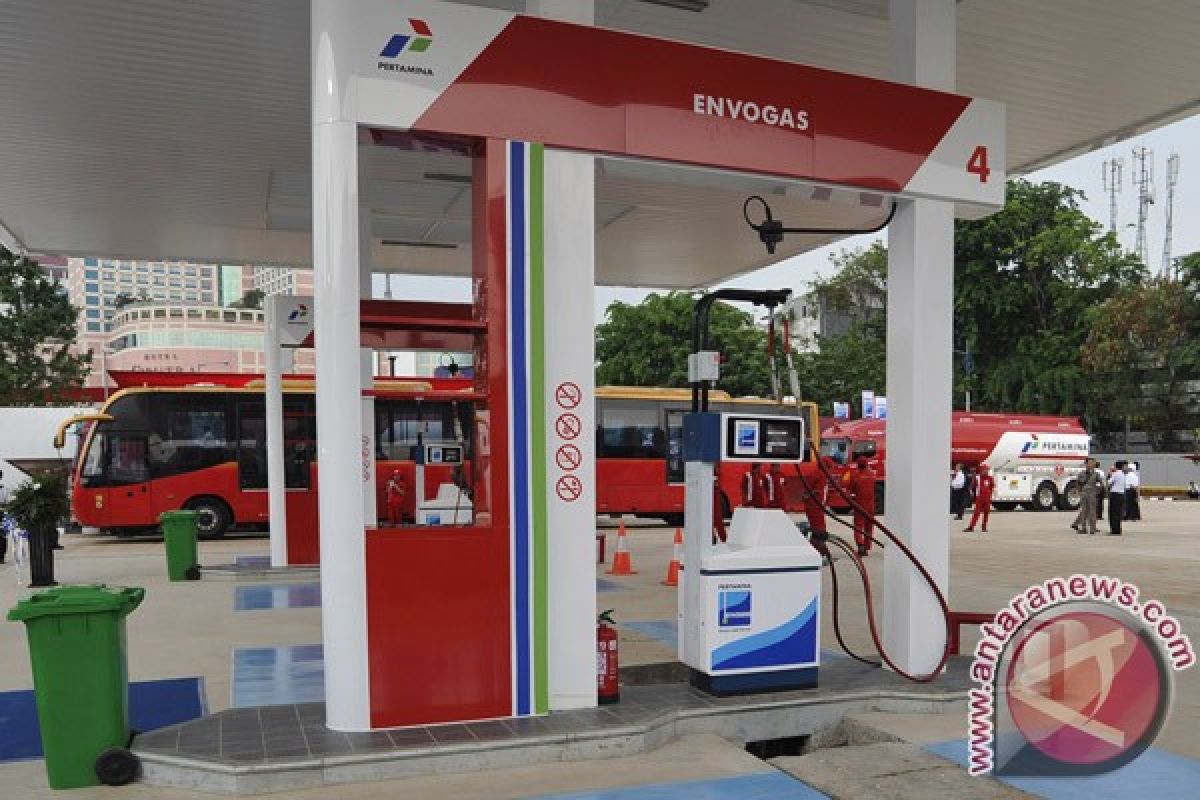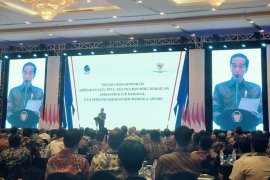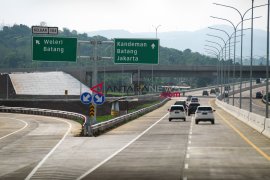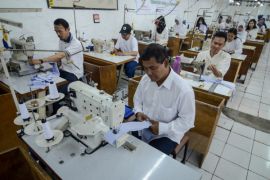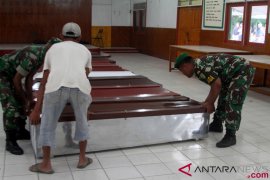"We will begin the program with taxis and public transportation vehicles."Jakarta (ANTARA News) - The government is developing infrastructure facilities, such as gas refilling stations (SPBG) and gas pipeline distribution networks, in order to implement its fuel-to-gas conversion programme for vehicles this year.
For the construction of fuel-to-gas conversion infrastructure facilities, the government has set aside Rp470 billion from the 2013 state budget. It is planning to build 4 to 5 SPBGs in Jakarta.
According to the Ministry of Energy and Mineral Resources` acting director general for oil and gas affairs, Edy Hermantoro, the government had earlier allocated the Rp470 billion to the construction of SPBGs alone in 2013.
However, it was later decided that a part of the funds would be used to build gas-pipeline networks. "We are also inviting the private sector to take part in it so that the programme will get implemented faster," he stated.
Once the programme is successfully implemented, Jakarta would have robust network of gas pipelines that would distribute gas to refilling stations. "Therefore, the government is focusing on this (gas distribution pipeline network) first to boost private sector participation. The pipelines will be laid close to gas users such as the Transjakarta busway station," Edy continued.
He said the government took the initiative of developing the pipeline network because the private sector could face financial difficulties while building the networks.
The regional government will be asked to facilitate land clearance for the construction of the pipeline infrastructure. The alternative locations for laying the pipelines will be between Bekasi and Jakarta, or in North Jakarta. Bekasi is a satellite town of Jakarta, which is situated to the east of the capital city and belongs to West Java province.
Previously, the government allocated Rp470 billion from the 2013 state budget to state-owned oil and gas company Pertamina to implement the fuel-to-gas conversion programme. Pertamina was supposed to use the funds to build seven gas refilling stations that would be connected to the Jabodetabek gas pipeline network. The Jabodetabek area includes Jakarta and its satellite towns of Bogor, Depok, Tengerang and Bekasi.
However, the government later changed the programme`s scope by allocating a part of the funds, Rp130 billion, to the construction of SPBGs. The remaining Rp340 billion will be used by Pertamina to build some five online SPBGs. The cost of construction of one unit of SPBG is estimated at Rp70 billion.
Besides that, the ministry of energy and mineral resources will also build one mother station with 4-5 daughter stations with a total fund of Rp127 billion.
Gas Affairs Director of Pertamina Hari Karyuliarto stated that for the construction of the stations, his office would re-open a tender that had previously been issued in 2012.
"The tender should be repeated because this time the funds are taken from the state budget. The tender will be reissued coinciding with the construction of two new SPBGs," he said.
"We hope all auctions will be started this month so the SPBGs will be operational by next June or July," Hari added.
Pertamina has previously auctioned the construction of three SPBGs, the funds for which were taken from the state budget. The three refilling gas stations were located in Pulo Gadung, Cililitan (both in East Jakarta) and Kalideres in West Jakarta.
Along with the construction of the gas distribution networks, the government is also considering speeding up the implementation of the fuel-to-gas conversion programme for the taxi fleet.
Energy and Mineral Resources Minister Jero Wacik said the government was planning to launch the fuel-to-gas conversion programme for taxis this year.
"We will begin the program with taxis and public transportation vehicles. Taxis and other public transportation vehicles move regularly so the programme can be accelerated. We will provide SPBGs at the taxi pools," the minister continued.
"The government will fulfil the gas needs and cooperate with the private sector, including taxi firms, to encourage others to implement the gas conversion programme, he said.
"We hope we can provide gas for them at taxi pools so that when they get out of their pools, their tanks will have already been filled with gas. What would remain to be done is to make gas tanks available at their warehouses," the minister pointed out.
After the implementation of the fuel-to-gas conversion programme on taxis in the Jabodetabek region, he stated, private cars were expected to follow suit by using gas and reducing their fuel consumption.
"This will encourage private car owners to use gas after seeing taxis using it. We will negotiate matters relating to the investment that is needed," Jero said, expressing hope that the programme would be implemented effectively this year, after talks were held with the Indonesian Motor Vehicles Industries Association (Gaikindo).
(T.A014/INE/KR-BSR/A014)
Reporter: by Andi Abdussalam
Editor: Priyambodo RH
Copyright © ANTARA 2013
